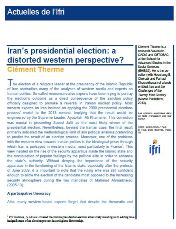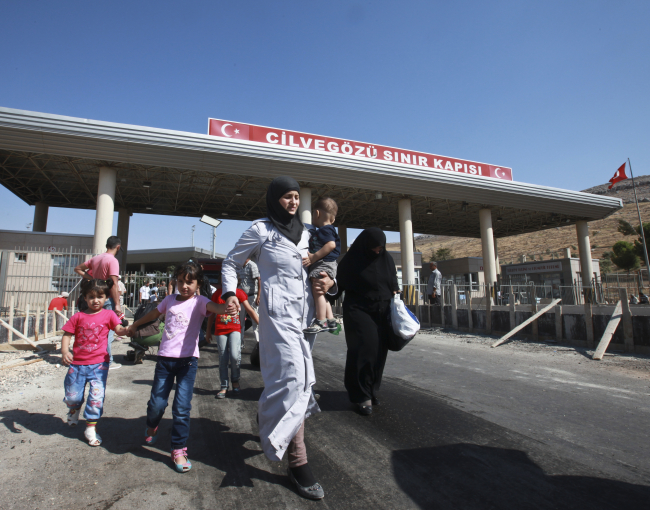Iran's Presidential Election: a Distorted Western Perspective?

The election of a religious leader at the presidency of the Islamic Republic of Iran contradicts many of the analyses of western media and experts on Iranian politics.
The election of a religious leader at the presidency of the Islamic Republic of Iran contradicts many of the analyses of western media and experts on Iranian politics. So-called neoconservative experts have been trying to portray the election’s outcome as a direct consequence of the sanction policy officially designed to provoke a reversal in Iranian nuclear policy. Most western experts on Iran insisted on applying the 2009 presidential elections process" model to the 2013 contest, implying that the result would be engineered by the Supreme Leader, Ayatollah Ali Khamenei. This conviction was crucial in presenting Saeed Jalili as the most likely winner of the presidential election. Nevertheless, beyond the Iranian case, the final result primarily indicated the methodological limit of any political analysis pretending to predict the result of an election process. Moreover, one of the problems with the western view towards Iranian politics is the ideological prism through which Iran is portrayed in western media, most particularly in France. This view insisted on the rise of the security apparatus inside the Islamic state and the manipulation of popular feelings by the political elite in order to enhance the state’s authority. Without denying the importance of the security apparatus in the functioning of the Islamic state, especially after the protests of June 2009, it is important to note that the ruling elite was still confident enough to allow the election of the candidate most opposed to the increasing security atmosphere during the two mandates of Mahmud Ahmadinejad (2005-13).
Clément Therme is a Research Associate, CADIS and CETOBAC at the School for Advanced Studies in the Social Sciences (EHESS). He is the co-editor (with Houchang E. Chehabi and Farhad Khosrokhavar) of a book entitled Iran and the Challenges of the Twenty-First Century (Mazda Publishers, 2013).

Available in:
Regions and themes
ISBN / ISSN
Share
Download the full analysis
This page contains only a summary of our work. If you would like to have access to all the information from our research on the subject, you can download the full version in PDF format.
Iran's Presidential Election: a Distorted Western Perspective?
Related centers and programs
Discover our other research centers and programsFind out more
Discover all our analysesRussia, the Palestinians and Gaza: Adjustments after October 7th
The Soviet Union (USSR), and subsequently the Russian Federation as its internationally recognized legal successor, has consistently sought to play a visible role in efforts to resolve the Israeli-Palestinian conflict.
Canada’s Recognition of a Palestinian State: What Consequences on its Foreign Policy Toward Palestine?
On September 21, 2025, Canada became the 148th of 157 countries to recognize Palestine as a state. It did this with the United Kingdom (UK) and Australia, defying the United States (US) and Israeli opposition.
How to Jumpstart Economic Recovery in Syria? The role of syrian entrepreneurs in Turkey
This report examines the potential role of Syrian-partnered companies operating in Türkiye in supporting economic recovery and reconstruction efforts in Syria. Based on data collected through field research and surveys conducted by the Economic Policy Research Foundation of Türkiye (TEPAV), the report provides an overview of the business characteristics, sectoral distribution, and cross-border economic activities of Syrian entrepreneurs. The report explores how this business activity could contribute to restoring supply chains, stimulating local production, and generating employment.
Indonesia and the Palestinian Cause
During his inaugural presidential speech on October 20, 2024, Indonesia’s incumbent president, Prabowo Subianto, iterated certain principles central to the philosophical foundation of the Indonesian nation. He noted Indonesia’s longstanding foreign policy of non-alignment or “bebas dan aktif” (free and active) and its aversion to military pacts.










